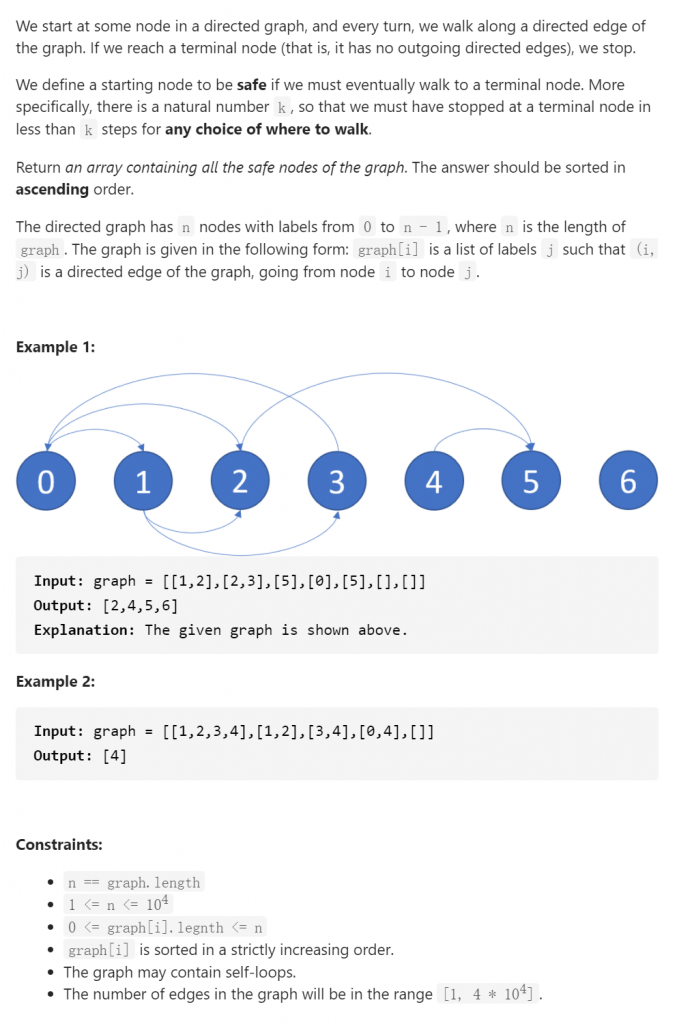Description

Submission
class Solution {
vector<int> visited; // 0: not visited, 1: current round, visited in another round
bool dfs(int node, vector<vector<int>>& graph) {
if(visited[node] == 2) return true;
if(visited[node] == 1) return false;
visited[node] = 1;
for(auto x: graph[node]) {
if(!dfs(x, graph)) return false;
}
visited[node] = 2;
return true;
}
public:
vector<int> eventualSafeNodes(vector<vector<int>>& graph) {
int n = graph.size();
visited.resize(n, 0);
vector<int> rets;
for(int i = 0; i < n; ++i) {
if(dfs(i, graph)) rets.push_back(i);
}
sort(rets.begin(), rets.end());
return rets;
}
};

class Solution {
public:
vector<int> eventualSafeNodes(vector<vector<int>>& graph) {
queue<int> q;
int n = graph.size();
vector<int> outDegree(n);
vector<vector<int>> rGraph(n); // the reversed graph
for(int i = 0; i < n; ++i) {
outDegree[i] = graph[i].size();
for(auto x: graph[i]) {
rGraph[x].push_back(i);
}
if(!outDegree[i]) q.push(i);
}
vector<int> rets;
while(!q.empty()) {
int cur = q.front();
q.pop();
rets.push_back(cur);
for(auto x: rGraph[cur]) {
--outDegree[x];
if(!outDegree[x]) {
q.push(x);
}
}
}
sort(rets.begin(), rets.end());
return rets;
}
};



